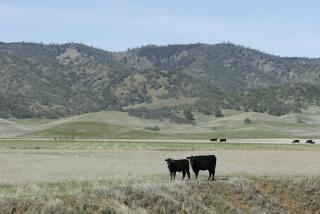Three Gorges Dam May Be Boon for China
In “Waters of Three Gorges Dam Will Wash Over World Culture” (Commentary, June 8), Lisa See starts by deploring the “looting of artifacts” in Iraq and the U.S. policy of securing oil wells “rather than protect[ing] thousands of years of culture.” What drivel! The Times previously reported that the looting was done by employees and that the artifacts have, for the most part, been returned to the museum. The oil wells are the principal source of income and will provide funds for recovery. Not only that, they are not in the center of Baghdad, where the museum is located. In addition, if the oil wells had been set on fire, as was done in Kuwait, the consequences for the environment would have been severe. After See’s first paragraph, I stopped reading with the thought that her views on Three Gorges Dam were likely as wrongheaded and misinformed.
Art Evans
Redondo Beach
*
See conveniently neglects to mention the positive sides to the building of the Three Gorges Dam in China. While it would be nice if the still-underdeveloped country had the financial resources to salvage some of its buried art treasures that will fall victim to progress, one must applaud the current government for having its priorities straight. In this fast-growing country with a population of 1.3 billion, there is an urgent need to produce more renewable, clean energy. The new dam will meet much of the country’s future needs for hydroelectric power.
Another major benefit lies in the fact that the harnessing of the Yangtze River will eliminate, or at least drastically reduce, the loss of thousands of lives and much property every year, as happened when the river flooded vast areas on its banks. Perhaps See is out of touch with reality. I like to think that the new dam will improve the standard of living for millions of Chinese. And let’s face it, growing prosperity is likely to change the political ideology of China’s people and government in the years ahead, which in turn will reduce the country’s desire to make war in the future.
Gordon Froede
Cheviot Hills
More to Read
Sign up for Essential California
The most important California stories and recommendations in your inbox every morning.
You may occasionally receive promotional content from the Los Angeles Times.









